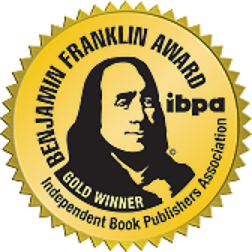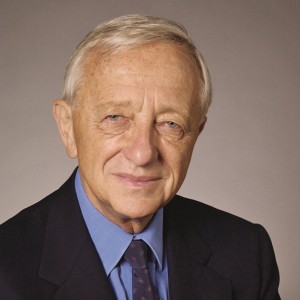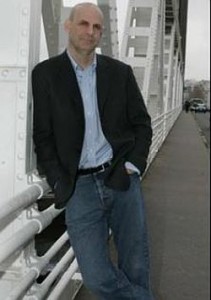James Rollins is known to millions of readers. His bestselling thrillers have been transla ted into more than forty languages. His books are noted for their originality, scientific authenticity and breakthroughs; as well as for being rich in historical facts and in revealing secrets ranging from findings far beneath the earth’s surface to those deep within its seas.
ted into more than forty languages. His books are noted for their originality, scientific authenticity and breakthroughs; as well as for being rich in historical facts and in revealing secrets ranging from findings far beneath the earth’s surface to those deep within its seas.
Along with co-author Grant Blackwood, James has launched a compelling spin-off series from his popular Sigma books. The first was The Kill Switch, featuring Tucker Wayne, a former Army Ranger, and his military working dog, Kane.
In War Hawk, the second novel in the series, a former army colleague needs Tucker’s help. She’s on the run with her son from assassins. In his efforts to help, Tucker must learn who killed a brilliant young woman—a crime whose roots go back to the most powerful people in the U.S. government. Tucker, with Kane’s help, must unravel a mystery which began in World War II and involved Alan Turing, the genius mathematician largely responsible for breaking the German Enigma code during the War.
In War Hawk, Tucker Wayne is still suffering from the psychological effects of war. Tell us about that.
One of the goals of writing the series was to explore PTSD. I wanted to examine a specific variation of PTSD, something I’d heard about while working with veterans’ organizations. It’s called moral injury.
During war, soldiers are often asked to do things defying their internal moral codes. Each of us has a moral compass built into us—one differentiating right from wrong. Because of the necessities of war, powerful strain may be put on that compass causing it to break. It can bring about a type of PTSD that can initially go unnoted, but manifests itself years later. The therapy for moral injury is different from that for the more frequently seen form of PTSD. While medication and counselling are typically given for the more frequently seen type of PTSD, medication doesn’t help for moral injury. The treatment is generally the passage of time and psychotherapy. It takes time to repair that moral compass. With Tucker, I wanted to shine a light on this aspect of the pathology.
Tucker’s relationship with Kane, his Belgian Malinois, is a central element of both War Hawk and The Kill Switch. Do these military dogs really have the intelligence and extensive receptive vocabulary depicted in the books?
They do. For The Kill Switch, I did extensive research, spoke to dog handlers, and went to Lackland Air Force base. I had a good understanding of these dogs. After The Kill Switch was published, I received some raised-eyebrows responses to the question of whether these dogs could really do what was depicted in the novel.
I inquired more deeply and learned what I was doing with Kane was completely realistic. In fact, I was told, ‘These dogs can do all that, but if anything, Jim, you’re pulling their reins back. Actually, these dogs are more capable than what you depicted in The Kill Switch.’ When writing War Hawk, I wanted to show what these dogs can truly do.
In The Kill Switch, Kane was obeying Tucker’s orders. War Hawk highlights these dogs’ true intelligence; they can think on the fly, listen to an order and make judgments in the field. When necessary, they can alter their behavior beyond the orders they were given to bring about the desired results. In this novel, Kane shows he can think independently.
What kind of receptive vocabulary do these dogs have?
A real-life military dog named Chase, an Australian shepherd, has a vocabulary of over a thousand words. So of course, Kane had to have at least that extensive a vocabulary [Laughter]. Most of these dogs have about half that vocabulary. But more amazing is this: they can link commands; they can follow a chain of commands in the exact order in which they were given. It’s also a reflection of the bond between the human being and the dog. We sometimes find when a handler is no longer in service and the dog is switched to another person, the vocabulary diminishes. But with time, as the new bond develops, that previous vocabulary is re-established.
War Hawk has incredible details about warfare technology—especially tracking and hacking devices along with ‘intelligent’ drones. Tell us about that.
In the novel, I wanted to explore drone technology because it’s been in the news. At first, I thought the notion of nearly invisible, semi-autonomous drones was pushing the envelope a bit. But as I was completing the work, I learned this had become a reality. When I began the novel, I thought I was writing something bordering on science fiction, but during the course of writing it, drone technology not only caught up but surpassed what I had envisioned. Recently, Elon Musk, the Tesla creator, and Steven Hawking have advised banning these war machines because they could be so dangerous.
Yes, in fact, some of the technology described in War Hawk, reminds me of the machines in the film, Terminator.
We’re getting to that point. A general recently announced he’s growing concerned because we’re now building drones capable of making their own decisions on “Shoot to Kill” orders. Once given the task, these machines can lurk overhead, evaluate situations and shoot on their own volition. They no longer need human guidance. It’s quite frightening to realize that we may be relinquishing human involvement and will no longer have total control over these drones, especially when we consider drones take lives.
When not working with a co-author, how do you approach the process, from doing research to producing the completed project?
Typically, I’ll spend ninety days researching the history or science to be included in the novel. I’ll also look at locations for the novel’s setting. At the same time, I build a skeletal plot to the story. By the ninety-first day, I have a rough outline and the major points of the novel are researched.
I then begin to write,, though with each day more things come up requiring research—some minutiae or facts to fill in certain blanks. It takes about six to seven months to complete the first draft; then another month or two to do a final polish. Then, off it goes to the editor.
I can write for five hours a day before feeling burned out. I typically produce five double-spaced pages daily. The rest of the day may involve some research, making calls, or going over a previously written manuscript. There’s some overlap which allows me to write two books a year.
I heard Lionsgate is turning the first book of the Sigma series, Map of Bones, into a feature film.
I’m very excited about that. The screenwriter is Joe Robert Cole.
Tell us about your work on the advisory board for a new grassroots organization, US4Warriors.
I’ve always supported veterans’ organizations. I was approached by US4Warriors which was founded by an author-friend of mine who wanted to pool the efforts of a large group of writers to support veterans. It started in San Diego and is expanding nationally. I’m on the advisory board because of my past experience with Authors United for Veterans. We have various projects; one is putting together an anthology to raise funds with the goal of getting veterans’ stories published that might not otherwise be accepted by mainstream publishers.
And with all these activities, you’re still donating time to do veterinary medical work?
Yes. One Sunday a month, I work with a group that captures feral cats in a ‘trap and release’ program. And, I can still neuter a cat in less than thirty seconds. [Laughter].
Your books have sold millions of copies. Your photograph is on the flap of each one. Has your life changed since you began writing novels?
Not particularly. Once in a blue moon, someone will recognize me which is startling. Once, someone called my name in an airport. I was shocked he actually recognized me. [Laughter]. That’s only happened three times, which is sort of a nice thing about being a writer—you have anonymity. Most people don’t really recognize an author they’ve been reading, even if it’s their favorite one.
If I’m in a public place and see someone reading one of my books, I’ll ask the person, ‘What do you think of that book?’ If they don’t like it, I’ll shrug and walk away. If they’re enjoying it, I’ll identify myself, and we’ll talk for a while.
What’s coming next from James Rollins?
I’ve completed The Seventh Plague, the next book in the Sigma series. And I’m also constructing the plot for the novel after that.
Congratulations on writing War Hawk, a gripping page-turner with some of the most vivid and tension-filled action, technology and suspense scenes found anywhere in thrillerdom. It also sheds light on the amazing capabilities of some of our best friends, dogs.








